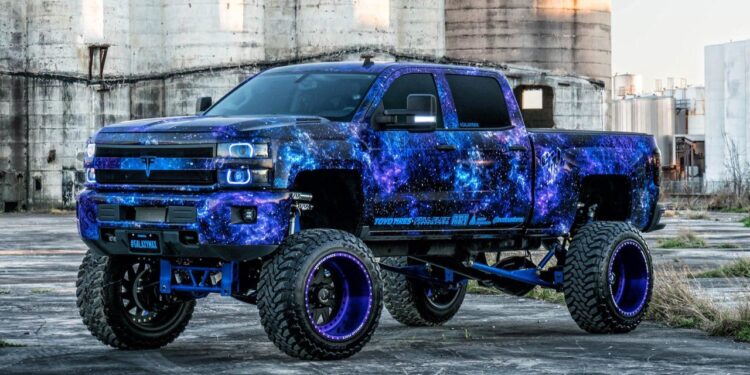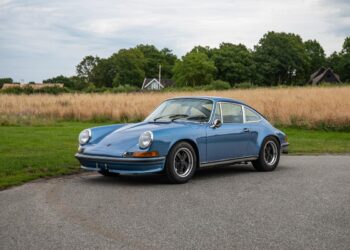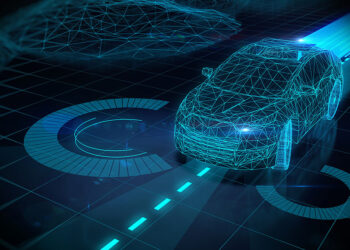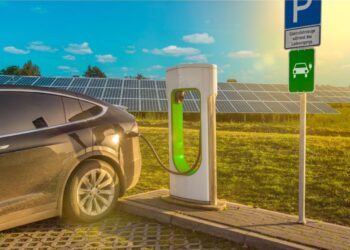In the automotive world, the factory-built car is the beginning, not the end. For decades, a dedicated subculture of enthusiasts has been pushing the boundaries of what a vehicle can be, transforming mass-produced machines into personalized works of art. Today, this passion for customization is moving from the garage to the boardroom, driven by a new wave of technology, a shift in consumer demand, and a desire for true individuality. The future of the automobile is not just about electric or autonomous; it’s about a return to the bespoke, where a vehicle is a true extension of its owner’s personality and lifestyle. These custom vehicle concepts are not just about aesthetics; they are about reimagining function, form, and the entire ownership experience.
This comprehensive guide will take a deep dive into the most significant trends and innovations shaping the future of custom vehicles. We will explore how technology like 3D printing and AI is democratizing customization, the rise of personalized modular platforms, the focus on sustainable and ethical materials, and the new business models that are making a one-of-a-kind vehicle more accessible than ever before. By the end, you will have a clear understanding of why the future of the automobile is a highly personalized one, where every car tells a unique story. The era of the mass-produced car is giving way to the age of the bespoke vehicle, and its influence will be as profound as it is exciting.
A. The Democratization of Customization

For a long time, bespoke vehicles were the exclusive domain of the ultra-rich. However, a new wave of technology is making a one-of-a-kind car more accessible to everyone, fundamentally changing the landscape of automotive design.
- A. 3D Printing and Additive Manufacturing: This technology is a game-changer for customization. It allows designers to create complex, lightweight, and highly specialized parts that are impossible to make with traditional manufacturing methods. You could print a custom interior trim that perfectly matches your home’s aesthetic, or a personalized grille with your own unique logo. The technology reduces waste, speeds up the design process, and allows for a level of intricate detail that was once unimaginable.
- B. Modular Vehicle Platforms: Many major automotive companies are developing modular platforms that can be used to build a variety of different vehicles. This design philosophy is perfect for customization. A customer could choose a basic platform and then add and subtract different modules—from a cargo box for a weekend trip to a lounge-like interior for a long commute—to create a vehicle that perfectly fits their needs. This is a move away from a fixed product to a customizable platform.
- C. AI-Powered Design: AI is being used to democratize the design process. A customer could use an AI-powered design tool to create their own personalized vehicle. They could input their preferences for color, texture, and style, and the AI would generate a series of unique designs. This puts the power of design in the hands of the consumer, making the process of creating a custom vehicle more intuitive and accessible.
- D. Virtual Reality (VR) and Augmented Reality (AR): VR and AR are being used to create an immersive customization experience. A customer could use a VR headset to sit inside a virtual replica of their custom vehicle before it is built. They could change the color, the materials, and the layout in real-time, giving them a level of confidence in their design choices that a simple 2D image could never provide. This technology is a critical part of the new customization workflow.
B. The New Language of Customization
The traditional idea of customization—a new paint job or a set of custom rims—is giving way to a more holistic and integrated approach. The new language of customization is about materials, technology, and a vehicle’s entire ecosystem.
- A. Sustainable and Exotic Materials: The interior of a custom vehicle is a showcase for craftsmanship and a new form of luxury that is rooted in sustainability. In addition to traditional leather and wood, custom vehicles are incorporating new materials like recycled carbon fiber, ethically sourced materials, and even materials made from mushrooms or ocean plastic. The new exotic is not just about rarity; it’s about a compelling story of sustainability and innovation.
- B. Hyper-Personalized Digital Experience: The digital cockpit of a custom vehicle is not just about a screen; it’s about a seamless, personalized experience. The infotainment system, the instrument cluster, and the in-cabin displays are all designed to reflect the owner’s personality. The UI and the software can be customized, and AI can be used to learn the owner’s habits and preferences, from their favorite driving mode to their preferred music playlist.
- C. The Vehicle as a Living Space: The line between a vehicle and a living space is blurring. Custom concepts are being designed with interiors that are more like a lounge or a workspace than a car. The seats can be reconfigured to face each other, the interior lighting can be set to create a specific mood, and the vehicle can be integrated with the owner’s smart home, allowing them to control their lights and temperature from the road.
- D. Integrated Health and Wellness: The future of custom vehicles will also be about health and wellness. Concepts are being designed with features like air purifiers, customizable cabin scents, and a seat that can track your posture and provide a massage. The vehicle is not just a way to get from A to B; it’s a space that is designed to improve your physical and mental well-being.
C. The Rise of the Bespoke Platform
The future of custom vehicles is not just about modifying a mass-produced car; it’s about a new business model where a vehicle is built from the ground up to be a unique, one-of-a-kind creation.
- A. Small-Scale Manufacturing: With 3D printing and modular platforms, it is no longer necessary to build millions of units to be profitable. Small-scale manufacturers can create highly specialized, low-volume runs of custom vehicles that cater to a very specific niche. This allows for a level of quality and a focus on detail that a large manufacturer simply cannot match.
- B. The Digital and Physical Handshake: The new business model for custom vehicles is a handshake between the digital and physical worlds. A customer can design their car in a virtual world, and that design can then be sent to a manufacturing facility to be built. This seamless workflow is a key part of the new customization ecosystem, as it allows for a level of collaboration between the customer, the designer, and the manufacturer that was once impossible.
- C. The Community-Driven Approach: The future of custom vehicles will be driven by a community of enthusiasts. Online forums and social media platforms will be a place where designers can share their ideas, where customers can find inspiration, and where small-scale manufacturers can find their next client. This community-driven approach will be a powerful force for innovation and creativity in the automotive world.
- D. The Aftermarket of the Future: The aftermarket for custom parts will become more sophisticated. You could download a 3D-printed design for a new part and print it in your own garage, or you could order a custom-made part from a small-scale manufacturer. This decentralized model will make it easier and more affordable for everyone to customize their vehicle, even an older one.
D. The Ultimate Expression of Individuality
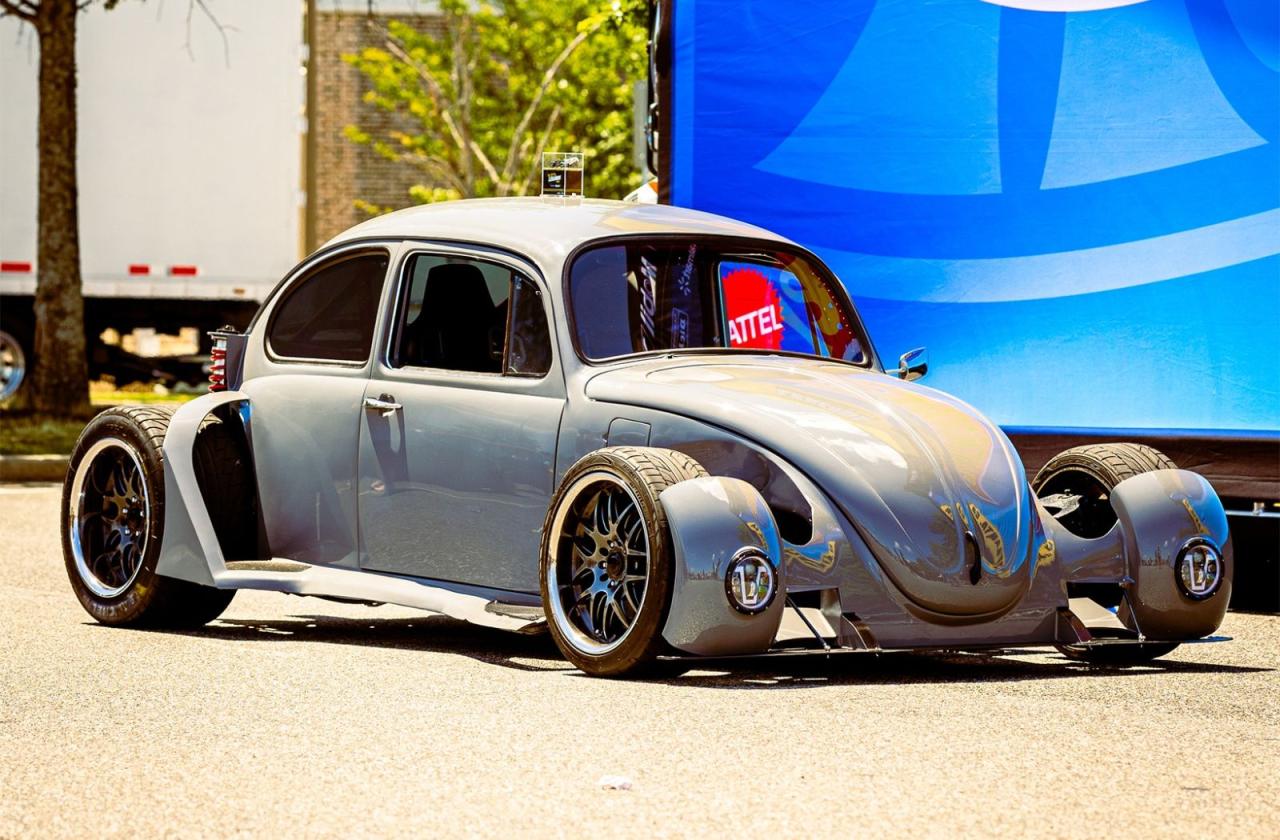
The custom vehicle of the future is not just a mode of transport; it is a profound expression of individuality and a reflection of a new form of luxury that is rooted in experience, personalization, and a compelling story. This shift from a commodity to a bespoke creation is the most exciting and transformative trend in the automotive industry.
- A. Beyond Status: A Personal Narrative: The traditional luxury vehicle was about status and wealth. The custom vehicle of the future is about a personal narrative. It tells a story about who you are, what you value, and how you live your life. It’s a testament to your personal style and your commitment to a unique and original point of view.
- B. A Return to the Human Touch: In an age of mass production, there is a deep-seated desire for something that is a unique, one-of-a-kind creation. The custom vehicle of the future is a return to the human touch, where a car is not just a machine but a work of art that is built with passion and attention to detail.
- C. The Vehicle as a Collaborative Project: The process of creating a custom vehicle is a collaborative project between the owner and the designer. It’s an opportunity to dream, to create, and to build something that is a true reflection of your vision. This is a far more rewarding experience than simply buying a car off the lot.
- D. The Power of Choice: The future of the custom vehicle is about the power of choice. It’s about a world where you are not limited by what is available but are free to create a vehicle that is a perfect and personal expression of your needs and desires. This is the ultimate form of luxury.
Conclusion
The future of the automotive industry is not just about a shift to electric power or autonomous driving; it is a fundamental move toward a world of bespoke and highly personalized vehicles. The custom vehicle concepts we see today are the harbingers of a new era where technology, design, and individuality converge to create a truly unique and meaningful ownership experience. By leveraging the power of 3D printing, AI, and modular platforms, the process of creating a one-of-a-kind vehicle is being democratized, making it accessible to a much wider audience. This is not just a new business model; it is a new philosophy of transportation that puts the owner at the center of the design and creation process.
The most successful brands in this new era will be those that understand that the ultimate luxury is not about what you possess but about the unique story your vehicle tells. It’s a return to the craftsmanship and passion of the past, powered by the technology of the future. The custom vehicle of tomorrow is a profound expression of individuality, a living space, and a collaborative project between the owner and the manufacturer. The road to bespoke is not just a new road; it’s a new way of thinking about mobility, and it is being built by you. By embracing the power of customization, we are not just designing new cars; we are creating a more personal, more meaningful, and more beautiful future for everyone on the road. The era of the mass-produced car is giving way to the age of the bespoke vehicle, and its influence will be as profound as it is exciting.

